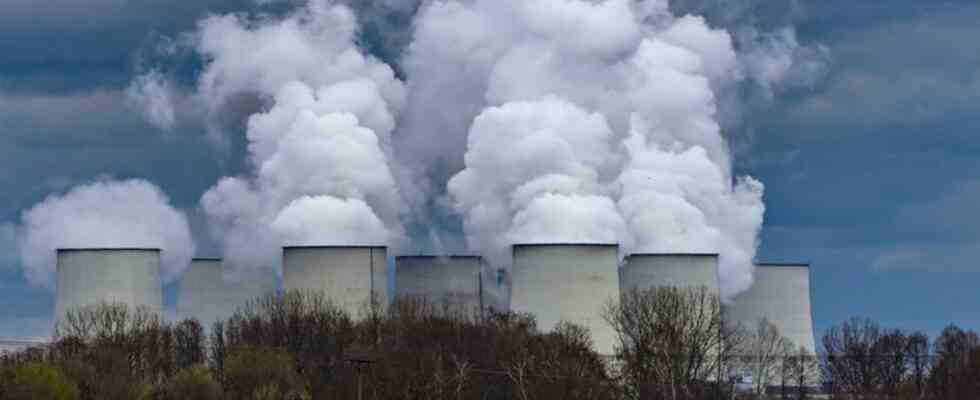environmental policy
DIW: Coal phase-out by 2030 remains possible
According to the study, the generation of electricity from hard coal and lignite could already drop significantly again from 2024. Photo: Patrick Pleul/dpa
© dpa-infocom GmbH
Will Germany achieve the desired phase-out of coal by 2030? Scientists from the German Institute for Economic Research are confident.
According to a study by the German Institute for Economic Research (DIW), even in the event of a Russian gas export ban, Germany’s target phase-out of coal by 2030 remains possible.
Coal-fired power plants without Russian gas would have to remain on the grid or on standby longer in the short term. “Due to the expected strong increase in renewables, however, the generation of electricity from hard coal and lignite may already drop significantly again from 2024,” write the researchers at the DIW.
If no more Russian gas flows to Germany soon, according to the DIW, around 43 terawatt hours would have to be replaced in the most extreme scenario. In addition, the nuclear power plants Isar 2, Emsland and Neckarwestheim 2, which are still active, will no longer be available and are due to be taken off the grid for good at the end of the year. According to the information, a further 64 terawatt hours of electricity will be missing in the coming year compared to 2020.
Some of these missing services can be compensated by renewable energies. “In order to secure the power supply in 2023, however, the hard coal-fired power plants scheduled for decommissioning this year should be kept temporarily in reserve and the hard coal blocks already in the reserve should remain in the reserve,” write the authors of the DIW.
The expected additional generation from coal-fired power plants with maximum savings of natural gas in 2023 is therefore between 41 terawatt hours and 73 terawatt hours.
Nevertheless, the scientists are confident that the coal phase-out remains feasible by 2030, despite the additional reserves needed in the short term. “In the medium term, renewable energies will replace a large part of fossil-based power generation,” they write.

